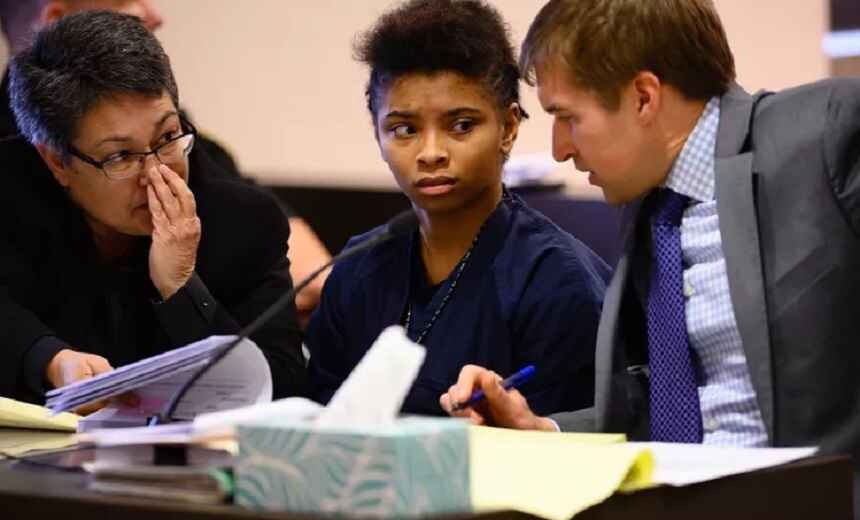Chrystul Kizer, a young Wisconsin woman who admitted to killing a guy she suspected of sex trafficking and raping her when she was 17 years old, has been sentenced to 11 years behind bars.
In addition to her prison term, she will spend five years of extended supervision, according to several reports published on Monday, August 19.
In May, Kizer, 24, of Milwaukee, pled guilty to second-degree reckless murder in the death of Randall Volar III, 34, in 2018. Volar, who was being investigated at the time for sexually abusing and trafficking minor girls, was the focus of a media frenzy as the case gathered traction.
According to the Associated Press, Kenosha News, and Milwaukee Journal Sentinel, Kizer’s plea agreement prevented her from facing a trial and the prospect of a life sentence.
The case has aroused heated debate, with trafficking victims and supporters claiming that Kizer’s acts were a direct result of the violence she underwent.
“The court is well aware of your circumstances surrounding your relationship with Mr. Volar,” the judge stated during sentencing, as reported by the Journal Sentinel.
However, the judge emphasized that Kizer could not be the one to deliver Volar’s punishment, saying, “You are not permitted to be the instrument of his reckoning. To hold otherwise is to endorse a descent into lawlessness and chaos.”
Prosecutors said Volar met Kizer online and paid for sex while she was still a teenager. Kizer’s defense claimed that Volar regularly assaulted and recorded her and other minor females. They said that the torture caused Kizer to crack, which resulted in Volar’s death.
Kizer was arrested on June 9, 2018, after shooting Volar twice in the head and setting fire to his home in Kenosha. She acknowledged to murdering Volar in the early hours of June 5, 2018, following an incident in which she said he held her to the ground after she refused to have sex with him.
Following the death, Kizer uploaded a photo on social media taken at Volar’s residence, captioned “My Mug Shot,” and reportedly stole his BMW.
During the trial, Kizer’s counsel referred to a 2008 Wisconsin legislation that protects sex trafficking victims from prosecution for crimes committed as a direct result of being trafficked. Despite this, the prosecution said that Volar was only a “customer” and that there was no proof of him engaging in sex trafficking for economic objectives.
On November 8, Kizer will have a restitution hearing to discuss the specifics of her case and the consequences of her behavior.
The case has sparked debate over the court system’s treatment of trafficking victims who revenge against their abusers, with many pushing for changes to how such cases are handled. The conclusion of Kizer’s reparation hearing may have long-term repercussions for similar situations.
Also Read: Tupac prosecutors given secret Biggie murder files that could ‘implicate’ big 90s stars












